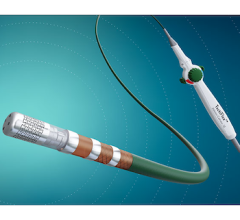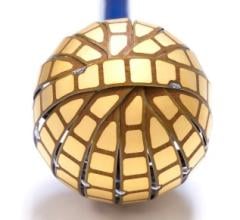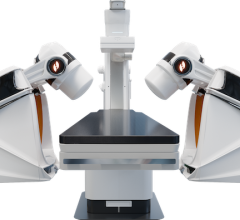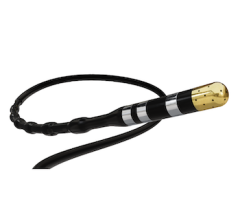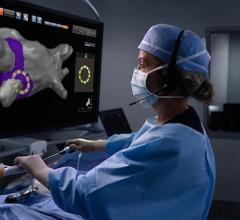July 9, 2008 - New research shows catheter cryoablation is comparably effective to radiofrequency catheter ablation for the treatment of atrial flutter (AFL) and may have some safety advantages over the use of radiofrequency.
The findings are detailed in a study published in the July edition of the HeartRhythm Journal, the journal of the Heart Rhythm Society. This is the first large, multi-center study to prove the acute and long-term safety and efficacy of catheter based-cryoablation for the treatment of AFL, reporting six-month follow-up results for 160 patients.
AFL is characterized by a rapid heartbeat and is caused by a single electrical wave that circulates very rapidly in the atrium, about 300 times a minute, leading to a very fast, steady heartbeat. This rapid heartbeat disrupts the pumping of blood to the heart and complications of atrial flutter can potentially lead to a stroke.
Currently, radiofrequency catheter ablation is a very common and effective treatment of AFL, with cure rates around 95 percent. However, radiofrequency catheter ablation can cause serious side effects, such as coagulum formation or endocardial charring which can lead to potential long-term health complications. Catheter-based cryoablation is said to be a viable and safer alternative to radiofrequency catheter ablation, but its efficiency in treating AFL had not been systematically evaluated in a large clinical trial until now.
The study led by Gregory K. Feld, M.D., of the University of California, San Diego (UCSD) School of Medicine, performed catheter-based cryoablation at 12 medical centers in 160 patients with cavotricuspid isthmus-dependent AFL. Patients were evaluated at one, three and six months and underwent weekly and symptomatic event monitoring. The study revealed 90.2 percent of patients remained clinically free of AFL, proving the effectiveness of cryoablation in the treatment of AFL.
“A study of this size, performed at multiple centers, better validates the safety and efficacy of a device for arrhythmia treatment, compared to smaller, single center studies,” Feld said. “The validity of this large multi-center study proves that cryoablation is reliable treatment of atrial flutter, and is further supported by the many safety advantages cryoablation offers over radiofrequency treatment.”
As shown in this study and others, in addition to the newly proven effectiveness of cryoablation in the treatment of AFL, cryoablation also presents a number of safety advantages over radiofrequency, including: less pain, less risk of coagulum formation, less risk of causing heart block and no risk of causing pulmonary vein stenosis which is the narrowing of the vein caused by heating.
For more information: www.heartrhythmjournal.com


 February 06, 2026
February 06, 2026 
